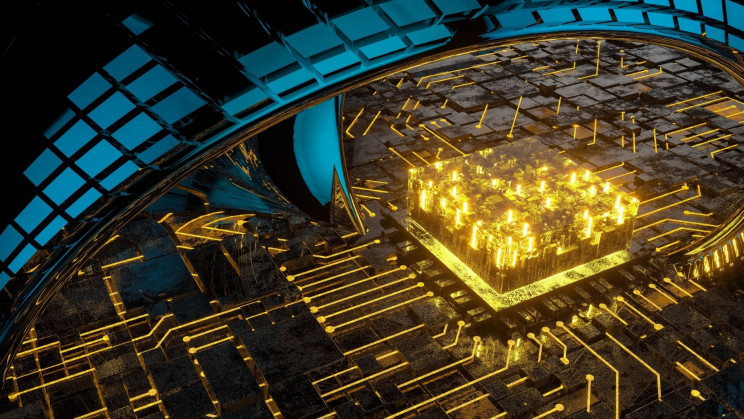How Asia Pacific is Leading the Way in Quantum Cryptography Advancements
SOURCE: HTTPS://CITYLIFE.CAPETOWN/
NOV 06, 2023
Quantum Computers With One-Million Times the Strength Are Needed To Crack Bitcoin
SOURCE: INTERESTINGENGINEERING.COM
JAN 27, 2022

A new study reveals whether quantum computers could crack the complex blockchain cryptography that makes Bitcoin possible, and the answer is... complicated.
Quantum computers could, in theory, crack Bitcoin, but probably not in the near future, as they would have to be about a million times larger than they are today, a report from NewScientist reveals.
So, in practice, the cryptocurrency likely won't be at risk from quantum computer-wielding hackers for roughly a decade.
The Bitcoin network uses a series of increasingly complex computations in the blockchain to make transactions. The immense processing power required to make these computations is what keeps crypto wallets secure, but it's also the reason behind climate concerns over cryptocurrencies. In February last year, for example, an analysis by the University of Cambridge showed that so-called Bitcoin miners use more energy worldwide than entire countries, including Argentina and the Netherlands.
While this energy-intensive process makes it practically impossible for ordinary computers to crack the code used by the Bitcoin network, quantum computers are expected to be orders of magnitude more powerful than today's classical computers. What's more, several companies, including Google and IBM already claim to have achieved quantum supremacy, a term which refers to the successful achievement of a calculation that it would take thousands of years for a classical computer to achieve.
These recent breakthroughs in quantum computing are the reason why a team from the University of Sussex, led by Mark Webber, Ph.D., set out to investigate the requirements one of the machines would need to crack the Bitcoin network.
"The [Bitcoin] transactions get announced and there's a key associated with that transaction," Webber told NewScientist. "And there’s a finite window of time that that key is vulnerable and that varies, but it's usually around 10 minutes to an hour, maybe a day."
Webber and his team calculated that breaking Bitcoin's code in this 10-minute window would require a quantum computer with 1.9 billion qubits. Cracking it in an hour would require 317 million qubits, while 13 million qubits would be required to crack it in a day.
"This large physical qubit requirement implies that the Bitcoin network will be secure from quantum computing attacks for many years (potentially over a decade)," Webber wrote in a paper published in the journal AVS Quantum Science. While that is assuring for Bitcoin owners, it does also highlight the possibility that huge Bitcoin fortunes could become vulnerable in the not-too-distant future.
IBM's superconducting quantum computer has only 127 qubits, meaning it would have to be a million times larger to hack Bitcoin. However, the company aims to build a 1000-qubit quantum computing chip called Condor by 2024. The pace of innovation in quantum computing is difficult to predict, but you can bet a Bitcoin that hackers will be keeping an eye on the latest developments.
LATEST NEWS
WHAT'S TRENDING


Data Science
5 Imaginative Data Science Projects That Can Make Your Portfolio Stand Out
OCT 05, 2022

SOURCE: HTTPS://CITYLIFE.CAPETOWN/
NOV 06, 2023
SOURCE: HTTPS://WWW.SCIENCEDAILY.COM/
OCT 27, 2023
SOURCE: HTTPS://WWW.SCIENCEDAILY.COM/
OCT 26, 2023
SOURCE: HTTPS://THEQUANTUMINSIDER.COM/
SEP 28, 2023
SOURCE: HTTPS://TECHMONITOR.AI/
OCT 03, 2023
SOURCE: HTTPS://SCITECHDAILY.COM/
AUG 29, 2023
SOURCE: HTTPS://WWW.DIGITALJOURNAL.COM/
AUG 26, 2023
SOURCE: HTTPS://WWW.TECHTIMES.COM/
AUG 16, 2023